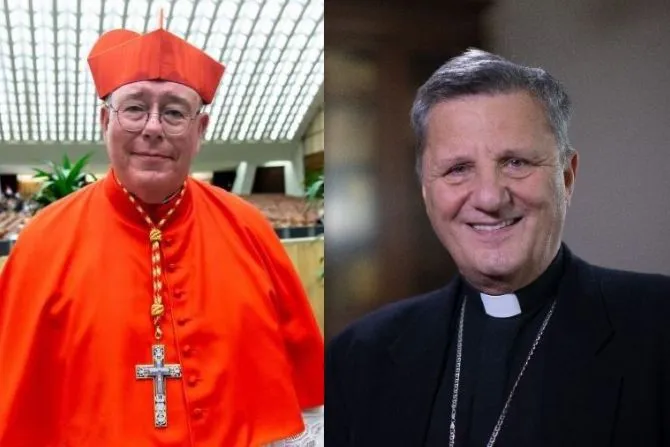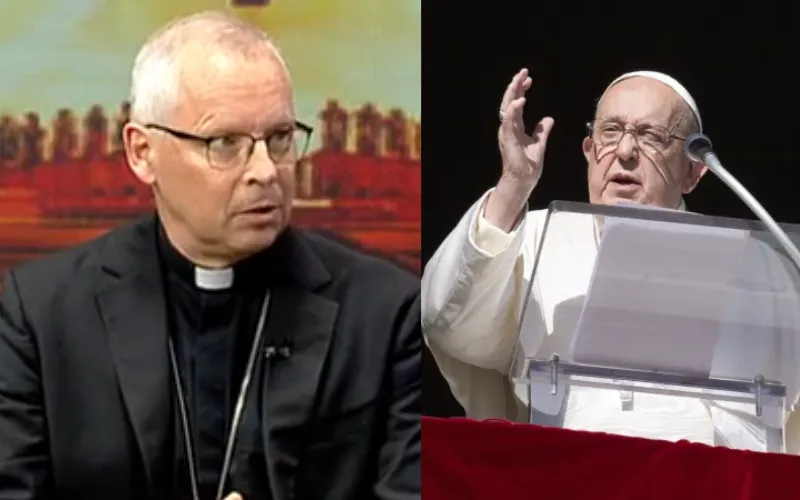While the North American Continental Assembly has already begun to meet virtually, other continents are hosting in-person meetings in February and March:
-
Europe and Oceania will both begin their Continental Assemblies on Feb. 5.
-
Two hundred delegates will meet in Prague, Czech Republic, for the first part of the European Continental Assembly Feb. 5-9 followed by a meeting of the 39 European bishops, who each serve as the president of his country’s bishops’ conference, from Feb. 9-12 with an additional 390 delegates participating online (10 for each bishops’ conference.)
-
Bishops from Australia, New Zealand, and Papua New Guinea will join together with delegates from other parts of Oceania for a five-day meeting in Suva, Fiji, for the Oceania Continental Assembly Feb. 5-9.
-
The Middle East Continental Assembly will take place in Beirut, Lebanon, Feb. 12-18, with the participation of clergy from at least seven Eastern Catholic Churches.
-
Bishops and delegates from across Asia will meet in Bangkok, Thailand, Feb. 24-26 for the Asian Continental Assembly with 100 expected participants.
-
The African Continental Assembly will take place in Addis Ababa, Ethiopia, with the participation of 95 laypeople, 12 religious sisters, 18 priests, 15 bishops, and seven cardinals, a total of 155 delegates, March 1-6.
-
The Latin American and Caribbean Continental Assembly will be held as four separate meetings across the region. The first will be in El Salvador Feb. 13-17 with participants from Mexico and Central America. The second for the Caribbean is in the Dominican Republic Feb. 20-24. The third is in Quito, Ecuador, Feb. 27-March 3, and the fourth is in Brasilia, Brazil, March 6-10.
The General Secretariat of the Synod of Bishops describes these Continental Assemblies as a meeting to “reread the journey made and to continue the listening and discernment … proceeding in accord with the socio-cultural specificities of their respective regions.”
The discussion at the Continental Assemblies will be guided by a 44-page working document officially called the DCS (Document for the Continental Stage).
The text calls for “a Church capable of radical inclusion” and says that many local synod reports raised questions about the inclusion and role of women, young people, the poor, people identifying as LGBTQ, and the divorced and remarried.
In the letter signed by Grech and Hollerich on Jan. 26, the cardinals stressed that the themes proposed in the document guiding the synod’s continental phase discussions “do not constitute the agenda” for the Synod of Bishops assembly in October 2023.
“The decision to restore the DCS to the particular Churches, asking that each one listen to the voice of the others … truly manifests that the only rule we have given ourselves is to constantly listen to the Spirit,” it said.
The synod organizers added that it will be the task of the Continental Assemblies to identify “the priorities, recurring themes, and calls to action” that will be discussed during the first session of the Synod of Bishops Oct. 4-29.
Each Continental Assembly is required to submit a final document of no more than 20 pages providing the region’s response to three reflection questions based on the DCS by March 31:
-
Which intuitions resonate most strongly with the lived experiences and realities of the Church in your continent? Which experiences are new or illuminating to you?
-
What substantial tensions or divergences emerge as particularly important in your continent’s perspective? Consequently, what are the questions or issues that should be addressed and considered in the next steps of the process?
-
Looking at what emerges from the previous two questions, what are the priorities, recurring themes, and calls to action that can be shared with other local Churches around the world and discussed during the First Session of the Synodal Assembly in October 2023?








